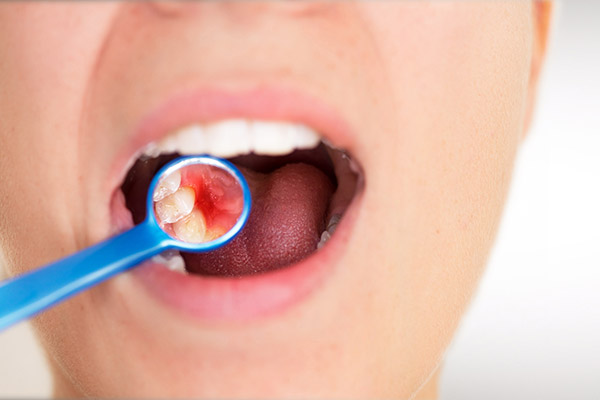 A periodontist is a dentist who focuses on issues that affect gum tissues, like periodontal disease. Also known as gum disease, the condition is an infection of gum tissues that can lead to symptoms like receding gums, pus coming from the base of teeth, and loose teeth.
A periodontist is a dentist who focuses on issues that affect gum tissues, like periodontal disease. Also known as gum disease, the condition is an infection of gum tissues that can lead to symptoms like receding gums, pus coming from the base of teeth, and loose teeth.
Periodontal disease occurs in two stages: gingivitis and periodontitis. The former is the first stage of gum disease, and it can be reversed. Educating patients on improving their oral hygiene and teeth cleanings is typically enough to reverse the infection.
By the time the disease progresses into periodontitis, reversing it is no longer an option. A periodontist can only help manage the infection to minimize its damage to gum tissues and bone structures in the mouth. Treatments like bone and gum grafts can be performed to restore damaged structures in the mouth.
How our periodontist addresses severe periodontal disease
Patients are first evaluated to determine the severity of their condition. The dentist might go over their medical and dental history, searching for factors contributing to the patient’s condition. The patient’s teeth and gums are examined to assess plaque build-up and how sensitive their soft tissues are.
A dental probe is then used to measure the depths of the patient’s gum pockets. Gum pockets are small groves that form between teeth and the gum tissues below the gumline. Healthy gum pockets should be no more than 3 millimeters deep. Anything deeper than 5 millimeters is often a sign of gum disease.
Diagnostics like x-rays might be used to paint a clearer picture of the patient’s gum pockets and to assess damage to bone structures in the mouth.
Treatment options a periodontist might recommend based on their findings include:
- Teeth cleanings: These get rid of tartar deposits on teeth surfaces. It is typically used as a preventative treatment, and it helps to reverse gingivitis
- Root planing and scaling: Also known as deep cleanings, this involves removing tartar and plaque from teeth roots and crowns. It also includes polishing the patient’s teeth roots, making it harder for tartar to build up on them in the future
- Antibiotics: A periodontist might prescribe antibiotics to help manage gum disease. The antibiotic might be in the form of a prescribed mouth rinse
- Soft tissue grafts: These are used to cover up teeth roots left exposed due to gum recession – a symptom of gum disease. It includes stitching donor tissues over teeth roots, protecting them from acids in the mouth and tartar
- Pocket reduction surgery: This involves making incisions into a patient’s gums so they can be pulled back to expose teeth roots so they can be deep cleaned. It sometimes also includes recontouring damaged bone tissues before reattaching the patient’s gums
Our periodontist is here to help
Dealing with symptoms like receding gums, purplish gums, or pus coming from the base of your teeth? You might have gum disease. Give us a call or stop by our Summit clinic to explore treatment options.
Request an appointment or call Summit Periodontics & Dental Implants at 908-219-6664 for an appointment in our Summit office.
Related Posts
Wondering whether a periodontist can treat receding gums? Read on to learn more. Due to the increasing awareness about dental hygiene, many people are worried about gum recession. This issue is not just cosmetic: It may signal underlying dental problems that could cause serious health problems if ignored. Although routine dental care such as brushing,…
People who are seeking healthy gums but are dealing with challenges with gingivitis can see an expert periodontist, a dental professional who has studied the structures that support the teeth. These include the gums, the jawbone itself, and the ligaments that help hold the teeth in place.Periodontists are trained dentists who focus their attention on…
The most common procedure that a periodontist performs is removing plaque and tartar from their patients’ teeth. This procedure helps to remove the bacterial infection that causes gum disease and its symptoms. With time, monitoring, and a few follow-up procedures, the periodontist can restore the health of their patient’s teeth and gums. In the following…
